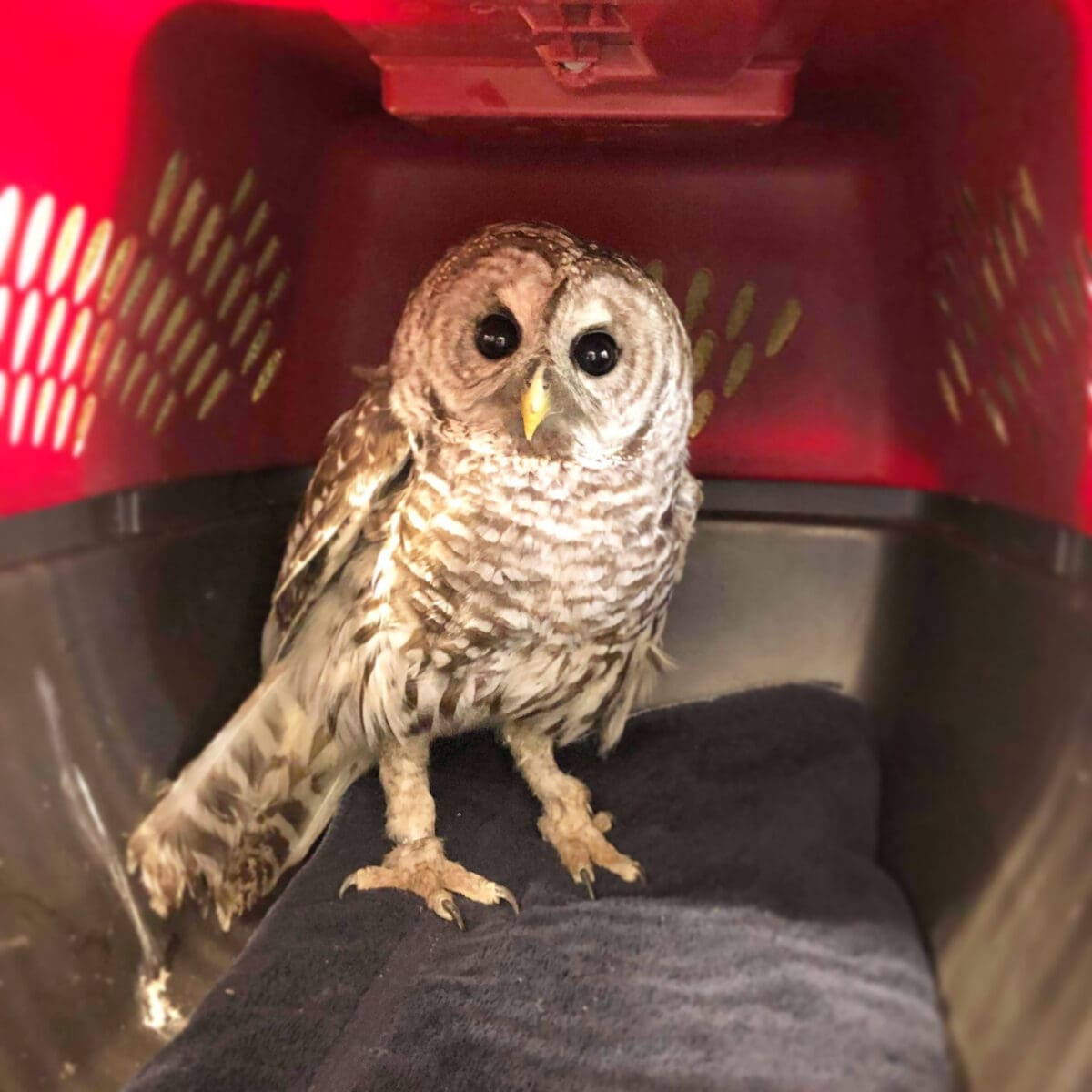The story of Lucky the owl, who was found poisoned in North Vancouver not once, but twice in a matter of weeks, has revived public calls for a ban on anticoagulant rodenticides. Wildlife are often the victims of poisons used by businesses, landlords, municipalities and homeowners to control rodent populations. These “secondary poisonings” happen when birds of prey or other predators eat poisoned rodents, causing a slow and painful death.
Thankfully, Lucky survived and was released after receiving treatment, but other animals who encounter these poisons aren’t so fortunate. The good news is that a growing number of B.C. municipalities are now taking action. In the months following Lucky’s poisonings, several municipalities have banned rodenticides on municipal properties, including the District and City of North Vancouver, Port Moody, Victoria and a number of other Vancouver Island communities. Most recently, West Vancouver has voted to consider a ban. Given that the wider use of rodenticides is regulated at the provincial level, the next step will be for municipalities to urge the province to consider a B.C.-wide ban.
VHS has submitted letters of support for municipal rodenticide bans and will advocate for a province-wide ban. We’ve also joined Owl Watch BC, a coalition of wildlife advocates. To learn more about taking action to ban rodenticides in your community, email VHS Campaign Director, Emily Pickett, at emily@vancouverhumanesociety.bc.ca.

